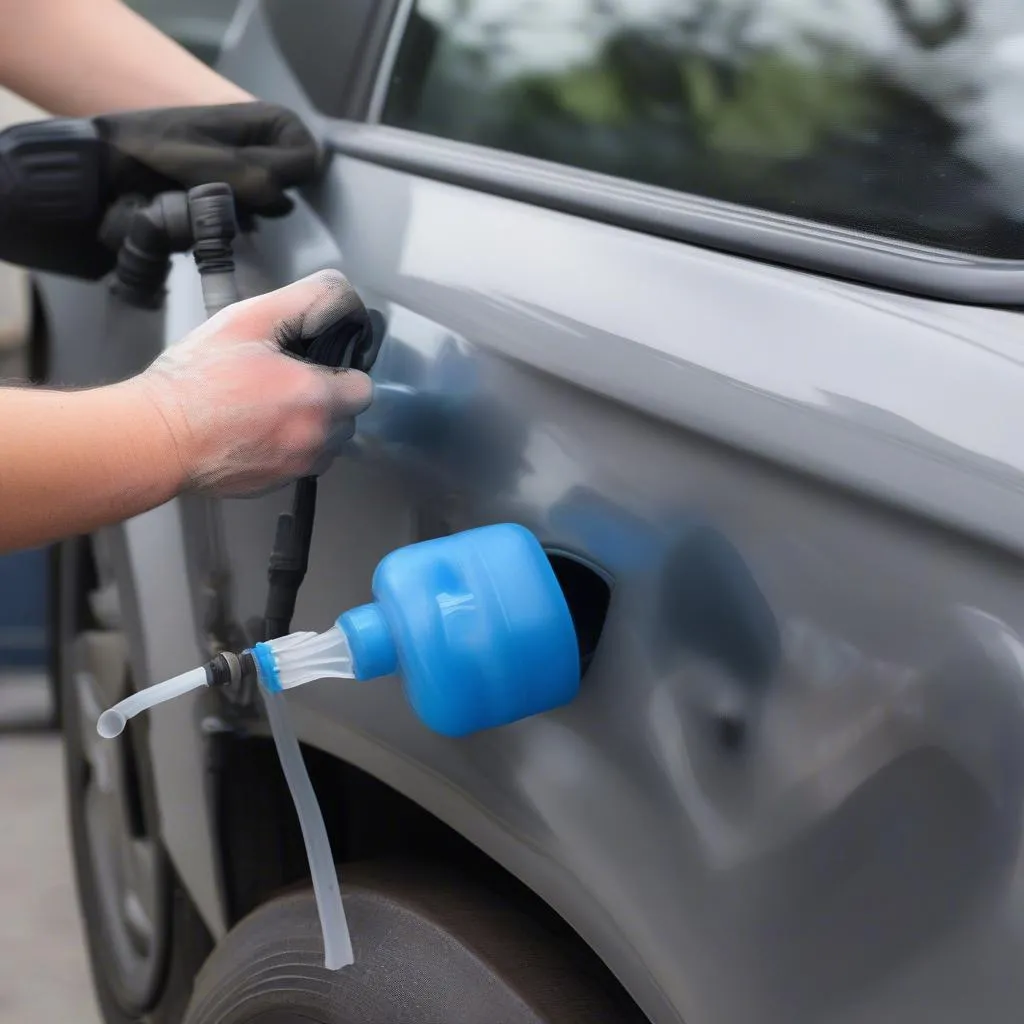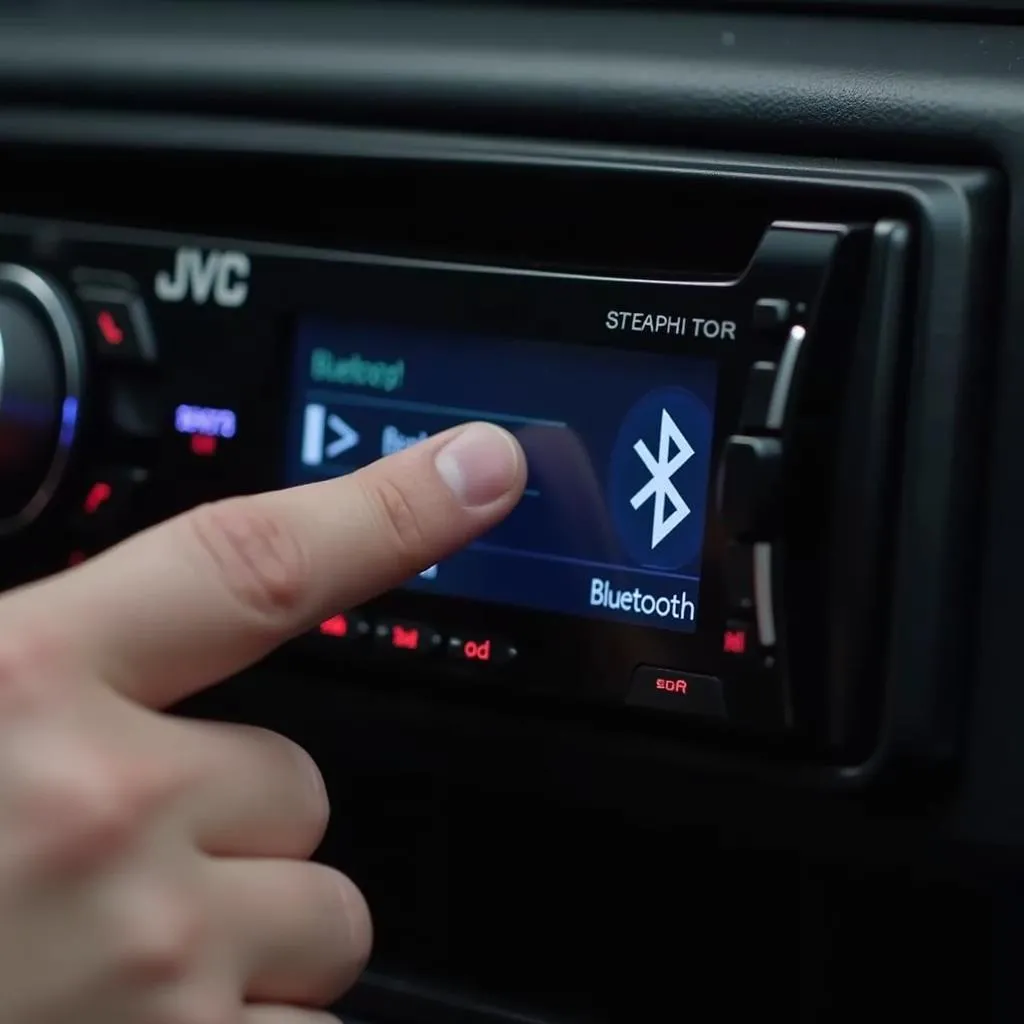Seeing an AdBlue warning light on your VW Golf’s dashboard can be frustrating. But don’t panic! This guide will walk you through how to identify the issue and reset the warning, potentially saving you a trip to the mechanic.
Understanding AdBlue and Its Importance
AdBlue, also known as Diesel Exhaust Fluid (DEF), is a crucial component in modern diesel engines. It helps reduce harmful nitrogen oxide (NOx) emissions, turning them into harmless nitrogen and water vapor.
Common Causes of AdBlue Warnings
Before we dive into the reset process, it’s crucial to understand what might have triggered the warning in the first place. Here are some common culprits:
- Low AdBlue Level: The most common reason is simply that your AdBlue tank needs a refill.
- Faulty AdBlue Sensor: Sometimes, the sensor that monitors the AdBlue level might malfunction, sending inaccurate warnings.
- System Malfunction: Issues within the AdBlue injection system, like a clogged injector, can also trigger warnings.
Diagnosing the Problem
Identifying the root cause is key to effectively resolving the issue. Here are some methods:
- Check Your AdBlue Level: Consult your owner’s manual for the location of the AdBlue tank (usually next to the diesel filler).
- Inspect the Dashboard Warning: The specific message displayed (e.g., “AdBlue Level Low,” “AdBlue System Fault”) can provide clues about the problem’s nature.
- Utilize a Diagnostic Scanner: For a more comprehensive diagnosis, consider using an OBD-II scanner. This tool can read error codes stored in your vehicle’s computer, pinpointing the exact issue.
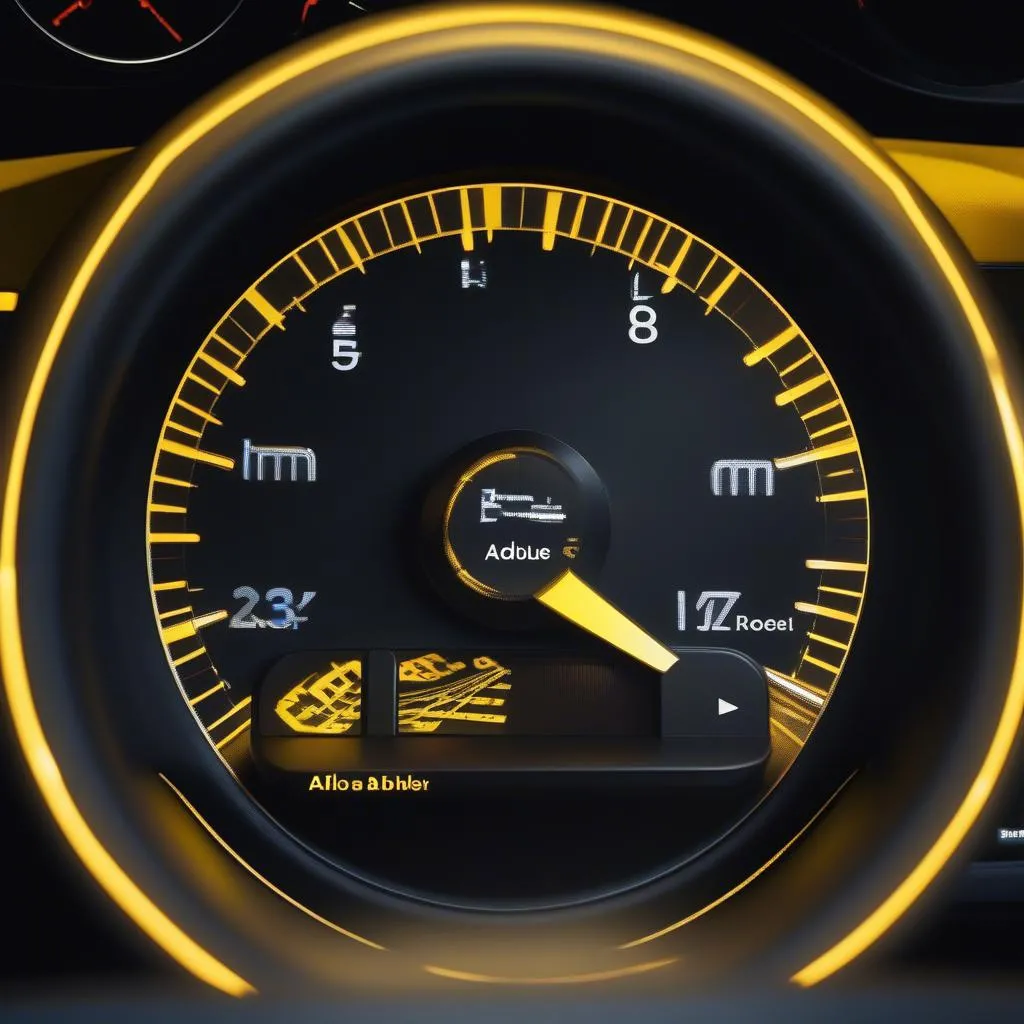 VW Golf AdBlue Warning Light
VW Golf AdBlue Warning Light
Resetting the AdBlue Warning on Your VW Golf
While the exact procedure may vary slightly depending on your VW Golf’s model year, the general steps are as follows:
Important: It’s recommended to address the root cause of the AdBlue warning before attempting a reset. Simply resetting the warning without fixing the underlying issue will only provide a temporary solution.
1. Refilling AdBlue
- If the warning indicates a low AdBlue level, purchase a bottle of AdBlue fluid from an auto parts store. Ensure it meets the specifications outlined in your owner’s manual.
- Locate the AdBlue filler cap (usually blue) and carefully pour the fluid into the tank until full. Avoid spills, as AdBlue can be corrosive.
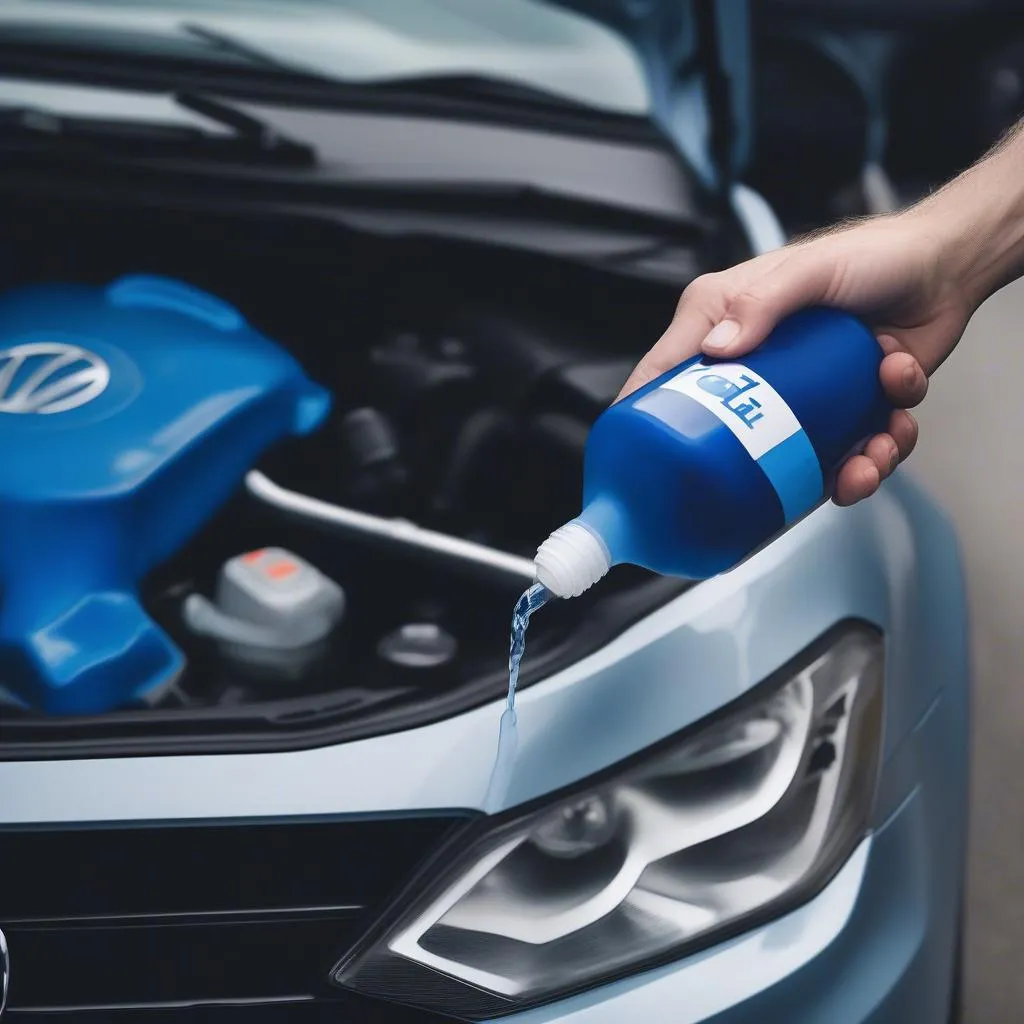 Refilling AdBlue Tank VW Golf
Refilling AdBlue Tank VW Golf
2. Resetting the Warning Using the Instrument Cluster
- Turn the ignition on but don’t start the engine.
- Navigate to the vehicle status menu using the controls on your steering wheel.
- Select the “Service” or “Maintenance” option.
- Choose “AdBlue” and follow the on-screen prompts to reset the warning.
3. Resetting the Warning Using an OBD-II Scanner
- Connect the OBD-II scanner to your vehicle’s diagnostic port, usually located under the driver’s side dashboard.
- Turn on the scanner and follow its instructions to establish a connection with your car’s computer.
- Access the “Engine” or “AdBlue” system menu.
- Select “Clear Codes” or “Reset Adaptations” to reset the AdBlue warning.
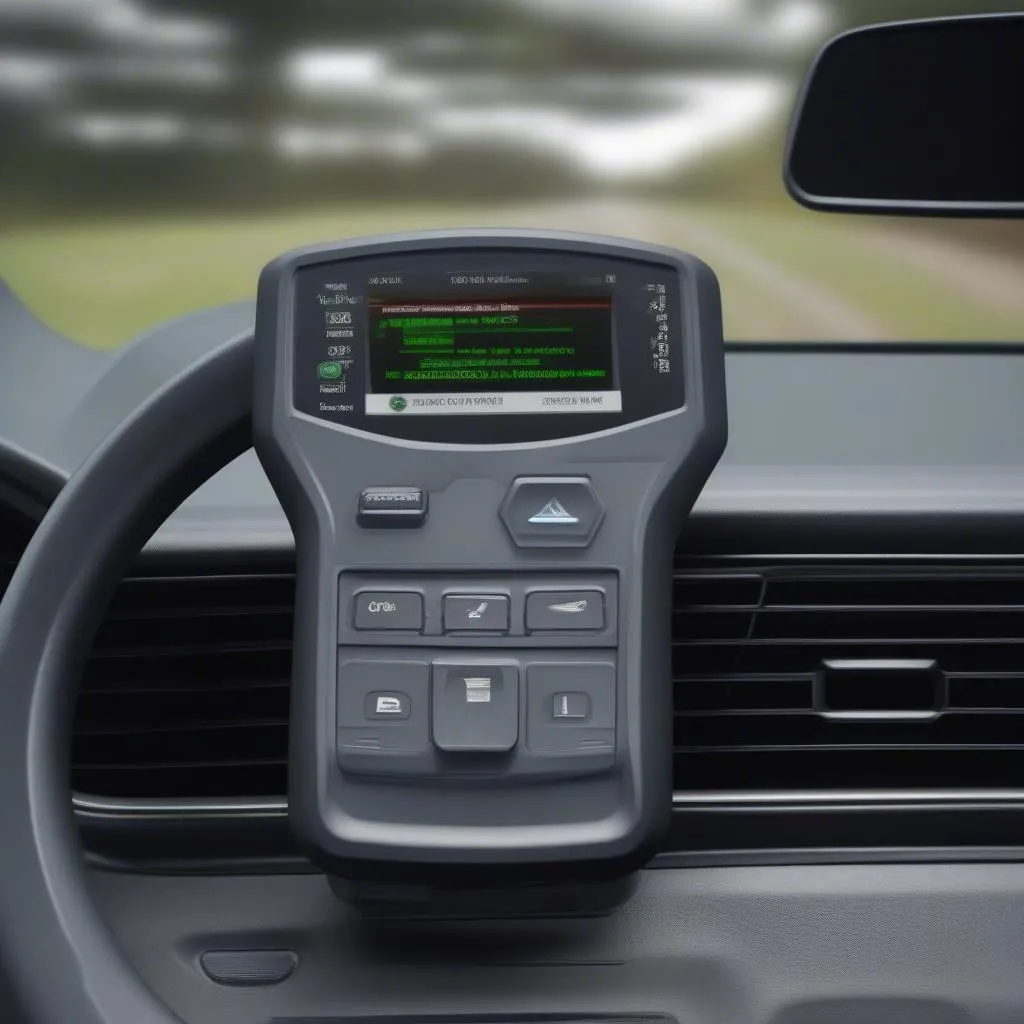 OBD-II Scanner Connected to VW Golf
OBD-II Scanner Connected to VW Golf
Frequently Asked Questions
Q: Can I continue driving with the AdBlue warning light on?
A: While it’s possible to drive for a short distance, ignoring the warning for an extended period can put your vehicle into “limp mode” to reduce emissions. This will severely limit your engine’s performance and could even prevent it from starting altogether.
Q: How often should I refill my AdBlue tank?
A: AdBlue consumption varies depending on driving conditions and engine load. Generally, you’ll need to refill the tank every 5,000 to 10,000 miles. Refer to your owner’s manual for specific recommendations.
Q: What if the warning persists after refilling AdBlue or resetting it?
A: In such cases, it’s highly likely that there’s a deeper issue with the AdBlue system, such as a faulty sensor or injector. It’s best to seek professional help from a qualified mechanic or dealership.
Cardiagtech: Your Trusted Partner for Automotive Diagnostics
Dealing with complex car systems can be daunting. If you encounter persistent AdBlue warnings or any other vehicle issues, consider Cardiagtech’s range of advanced diagnostic solutions. Our products empower you to diagnose and resolve problems efficiently, potentially saving you time and money.
Visit Cardiagtech’s website to explore our wide range of automotive diagnostic tools and software, designed to help you stay in control of your vehicle’s health.


